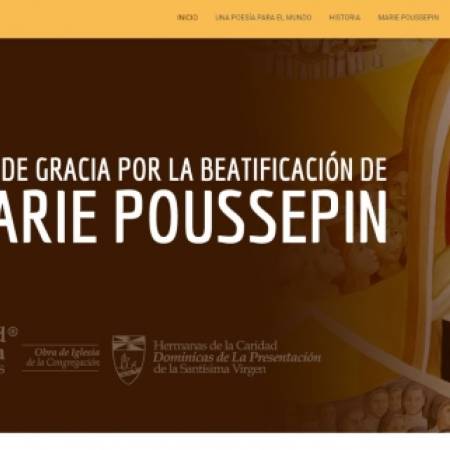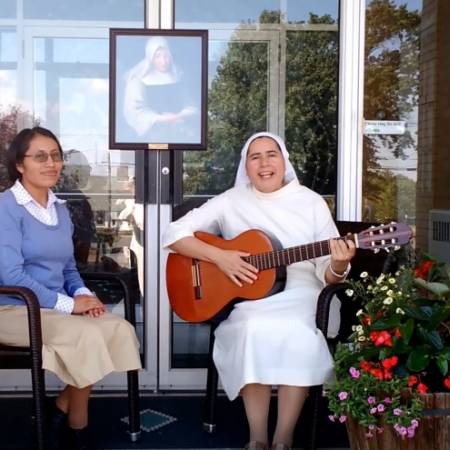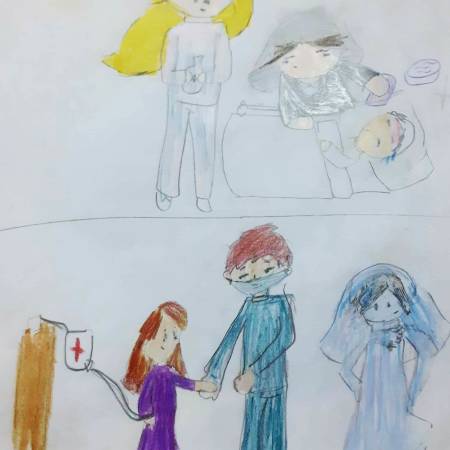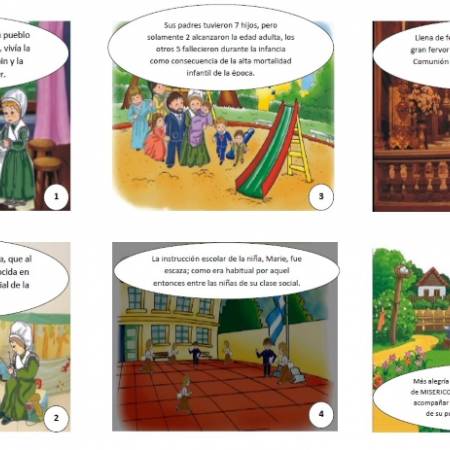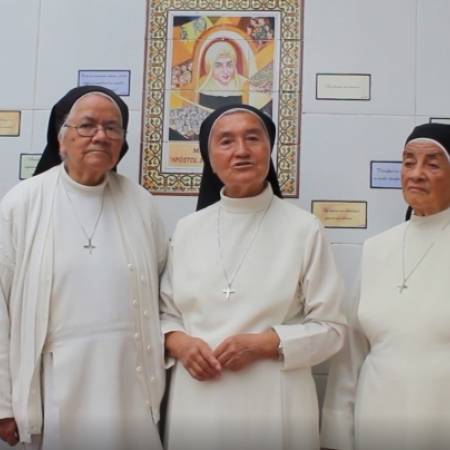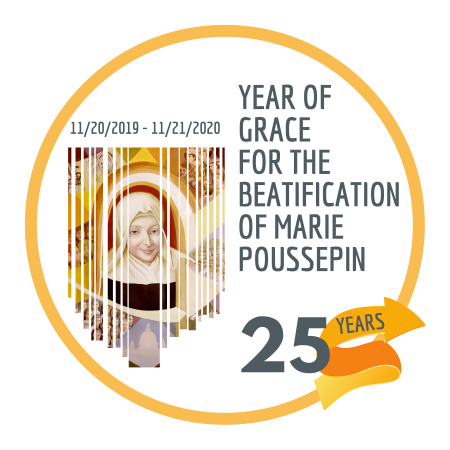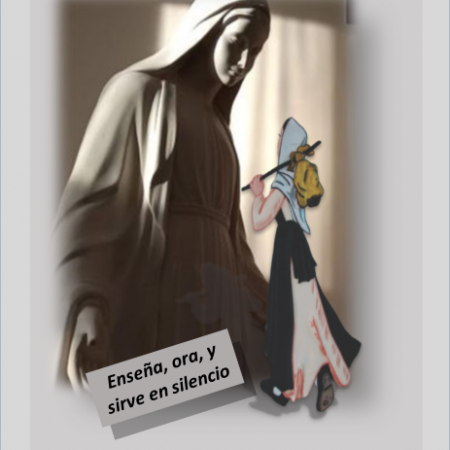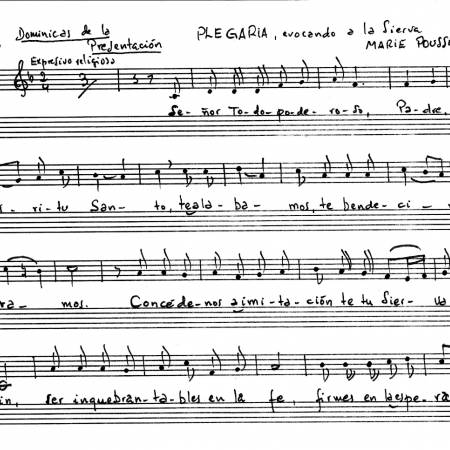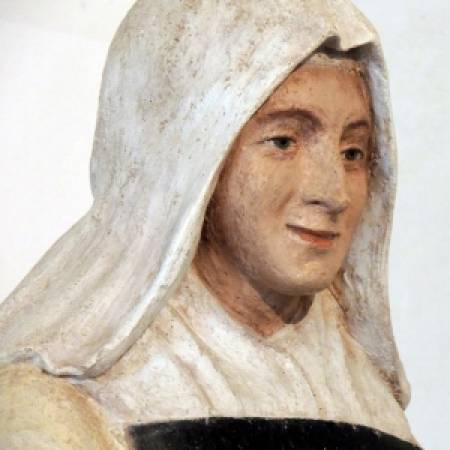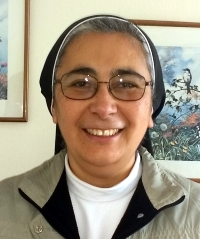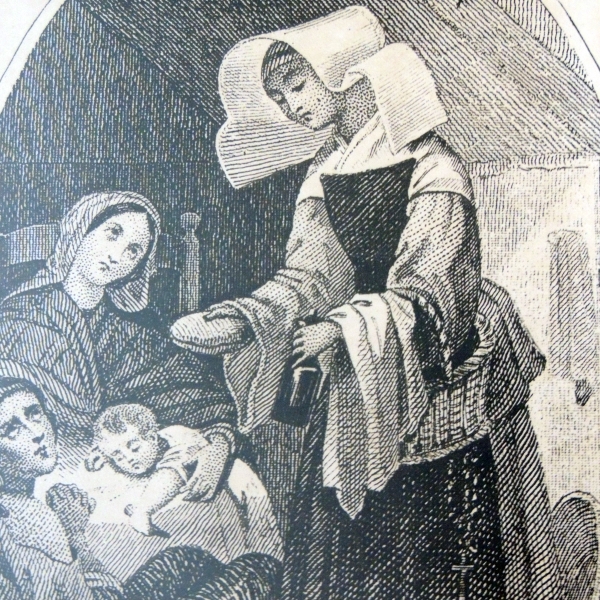Keep the presence of God in all your actions…” General Rules “She expects everything from God, but she also trusts those who responding to God's call, will follow her in faith.” (Original Vision)
The Experience of God
- Having felt, known or witnessed something.
- Prolonged practice that provides knowledge or ability to do something.
- Knowledge of life acquired by the circumstances or situations lived.
- Circumstance or event experienced by a person.
This definition leads us to place experience as a condition that involves the person in all dimensions: practical, intellectual, cognitive ...; talking about experience means getting involved, taking a stand and living it.
Now, when we talk about the experience of God, we mean it as a lived experience, as the knowledge of a Higher Being, who, from our Christian perspective, will transform us, just by knowing himself: “To know that Jesus is the best gift that anyone can receive, to have found Him is the best thing that has happened to us in life and to make Him known with our words and deeds is our joy”(Aparecida Document 29). This means to have met Him and had the opportunity to experience His presence and action in our lives ... That was Marie Poussepin’s experience of God, a great gift, a great opportunity that led her to leave herself and communicate with others.
In the Bible, we can find many passages that speak to us of experience, knowledge, practice or event that enables the person to relate to God and know God; Bible does not unfold the first call addressed to the heart of a person from the context of science, but from the context of life. In fact, for the Semitic people, to know means more than human knowledge and it expresses an existential relationship. To know something is to have a concrete experience of it (Gen 18:19; Jer 1:5; Rom 8:29). It is from this knowledge that every man and woman possess the religious sense, draws its meaning and it leads them to have that desire for transcendence.
A clear example of this experience is found in Job, who at the end of his spiritual journey is able to say to God: "I have known you only by hearing, but now my eyes see you.” (Job 42:5). Job was able to experience his presence and his action; he experienced God; he knew him.
In the first letter of John 1:1-3 we perceive more clearly this integrity of the whole being with regard to the experience of our relationship with God: “What was from the beginning, what we have heard, what we have seen with our eyes, what we looked upon and touched with our hands concerns the Word of life for the life was made visible; we have seen it and testify to it and proclaim to you the eternal life that was with the Father and was made visible to us what we have seen and heard we proclaim now to you, so that you too may have fellowship with us; for our fellowship is with the Father and with his Son, Jesus Christ.” Here we see a new insight; the experience of God enables us to bear witness and be proclaimers of all that has been experienced, in this case our own experience of God.
We have already said that Marie Poussepin’s experience of God was a great gift, an opportunity. In her, this experience is also perceived as the profound fundamental reality which makes her capable of asking from our first sisters who left the community being sent on mission, what she herself lives with intensity: "Keep the presence of God in all your actions; and in order to do this, speak of Him often, and renew often the intention to do everything for His glory...". General Advices
To preserve, treasure and safe guard this experience, this relationship and this link as a great treasure that will help, support and guide us, in those situations where the way is not so clear; to keep the presence of God, whose silent and merciful action which continues to make the journey and history of salvation with and in us.
This experience is thus related to trust in Providence. How can we not expect everything from the one who becomes our nourishment and the fundamental pillar of everything we do…? "Keep the presence of God in all your actions…"
Trust in Providence
Marie Poussepin lived this dimension as a choice and a style of life that she recommends to her sisters: "She expects everything from God, but she also puts her trust in those who will follow her in faith by responding to God’s call." Original Vision.
This abandonment and full trust in God open itself to fraternity and to the profound value that community acquires in our consecrated life. It leads us to that space which allows us to respond to God's call and where we can enter into relationship with others and our sisters who help us to live this response: "Each sister needs the others if she is to be fully herself. In this mutual assistance and in fraternal correction, each finds support for her fidelity to the Lord.” C.5.
Trust in Providence demands constant fidelity, “Work more and more at acquiring the necessary abilities and, in the meanwhile, do your best and pray fervently to obtain the capacities you still lack. God will not fail to grant you all that you need, provided that you conduct yourself in a manner worthy of obtaining it”. General Rules
This abandonment can only be lived by faith, as Pope Francis reminds us when reflecting on the words of Jesus: "If you had faith as a mustard seed, you would have said to this sycamore tree: 'Rip out and plant yourself in the sea', and it would have obeyed you... but nothing is impossible for those who have faith, because they do not rely on their own strength, but on God, who can do everything.“ (Pope Francis, Angelus October 6, 2019).
Marie Poussepin lived her total and complete trust in Providence through faith and her faith led her to want to respond in fidelity to the call she received from God. Today we are invited to rejoice in our vocation, in this call to continue the work of Providence, through the exercise of charity. The great question for each and every one of us is: are we ready?
We have the clear example of Marie Poussepin and the life witness of many of our sisters who silently continue to speak to us that this is possible and necessary today. Let us take the step; let us continue to move forward with the certainty that God does not leave us alone; let us deepen our spirituality which is our space to reinforce that unique and enriching experience of God who loves us and calls us.
POINTS FOR REFLECTION
Here are some guidelines for reflection that will help you not only to study this theme in depth, but also to confront your own life with the witness of Marie Poussepin.
1. Looking at my life...
At first, before you read the content offered in the texts for reflection, we invite you to take time to review:
What is my experience of God? What is the characteristic of my way of meeting God and relating to Him in my life?
How do I nourish my experience of God?
2. Looking at Marie Poussepin...
How do I express my trust in Providence in my life?
Am I aware that I can expect everything from God?
3. From the Church...
- Endurance, patience and meekness
- Joy and sense of humor
- Boldness and fervor
- In community
- In constant prayer
4. From the Congregation ...
At the 55th General Chapter, we were invited to go beyond borders. Marie Poussepin did it and she was able to go out of herself.
What elements from the proposed reflection shed light on your personal call to go beyond borders? And on the call of your local community?


 EN
EN  ES
ES  FR
FR 





